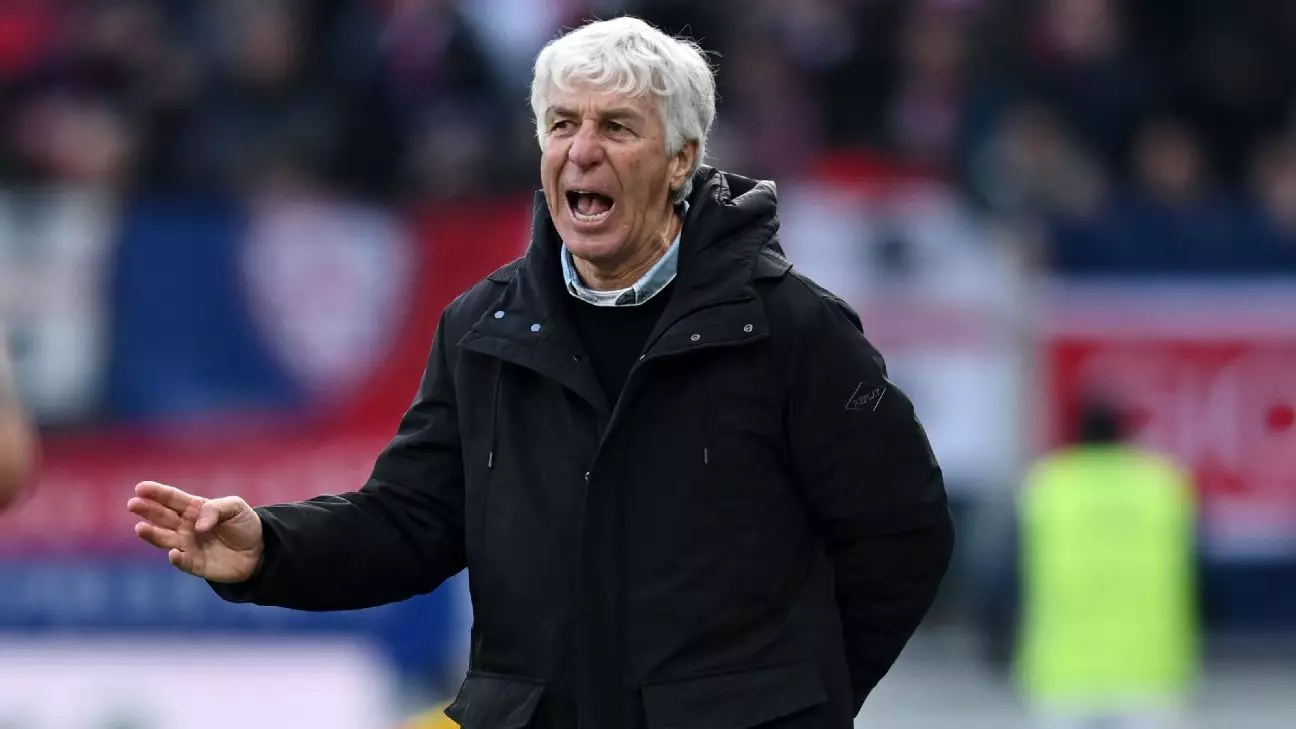In the world of football, where emotions often run high, public statements can carry significant weight. This was the case following Atalanta’s disappointing 3-1 defeat to Club Brugge in the Champions League. The loss not only eliminated Atalanta with an aggregate score of 5-2 but also triggered a wave of criticism directed at striker Ademola Lookman. After the match, coach Gian Piero Gasperini’s remark regarding Lookman being “one of the worst penalty takers” left a significant impact on the player and sparked a discussion about respect and accountability in team dynamics.
Gasperini, while trying to provide constructive criticism, inadvertently drew attention to Lookman’s missed penalty at a crucial moment in the game. Lookman, who had been a stellar performer last season, was not solely to blame for the loss; however, his penalty miss became a focal point. The coach’s comments became perceived as disrespectful, prompting Lookman to express his feelings through social media. His declaration that Gasperini’s words were “deeply disrespectful” highlights the delicate balance that coaches must navigate when giving feedback to athletes.
Gasperini attempted to downplay the incident, referring to a similar situation in another game where a player scored despite not being designated to take penalties. His remarks aimed to illustrate that such dynamics are not uncommon in football. However, his comparison fell short, as it failed to address the emotional implications of his initial critique on Lookman, evidencing a disconnect between intention and perception.
Player morale is vital in maintaining a successful team atmosphere, especially during challenging times. In discussing Lookman’s potential to develop as a penalty taker, Gasperini inadvertently sidestepped the need for emotional support within the squad. Recognizing and addressing players’ feelings is crucial, particularly in a high-pressure environment like professional football. A player’s confidence can wane after a public criticism, and Gasperini’s approach may need adjusting to foster a more supportive culture.
While Gasperini has a track record of success, this episode serves as a reminder that communication style matters. Acknowledging the emotional landscape of a team can enhance unity and improve performance on the pitch. Furthermore, it is essential for coaches to offer feedback in a manner that encourages growth rather than diminishes self-esteem.
Despite the controversy, Atalanta finds themselves in a competitive position within Serie A, sitting third with 51 points. Nonetheless, the pressure intensifies as they prepare for an upcoming match against Empoli, a team fighting for survival. Gasperini’s recognition of Empoli’s capabilities emphasizes the need for focus and resilience.
As the team heads into this critical game, it will be interesting to see how they reconcile these recent tensions. A cohesive and motivated squad is essential for overcoming the obstacles that lie ahead. Gasperini must navigate the fallout from his comments while ensuring that Lookman and other players feel supported and motivated to perform. Ultimately, how the team moves forward will showcase their ability to unify in the face of adversity.

